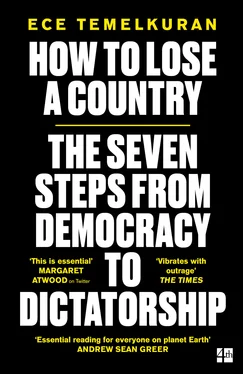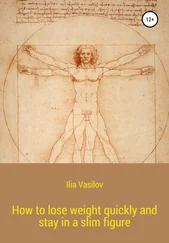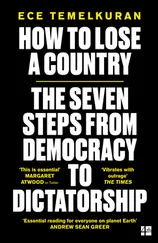The progressive movements that sprang up all around the world, from the World Trade Organization protests in Seattle in 1999 to the 2011 uprising in Cairo’s Tahrir Square, were in many respects a response to these fractured times. In a world where more people are talking, but fewer are being heard, they wanted to tell the rest of humanity, through their bodies, that regardless of our differences we can, and indeed must, come together to find collective answers to our age of disintegration, otherwise everything will fall apart. They demanded justice and dignity. They demanded that the world realise that a counter-movement is necessary to reverse the global course of events. They showed us that retreat is not the only response to the global loss of hope. They were the ones who resisted the temptation to ‘yield to the process of mere disintegration’, and rejected the notion that it is ‘a historical necessity’. *Their answer to disintegration was to create new, invigorating, temporary and miniature models of loose collectives in squares around the world. In several different languages they responded to the famous words of W.B. Yeats with the message that, if people unite, the centre can hold.
As time passed, however, many of these progressive movements ended up suppressed, marginalised or swallowed back into the conventional political system. For several understandable reasons they couldn’t accomplish what they started – not yet. However, their voice was clearly heard when they announced globally that representative democracy (abused by financial institutions and stripped of social justice) was undergoing its biggest crisis since the Second World War.
Today we are witnessing the response to similar fears of an entirely different mass of people, one with a more limited vocabulary, smaller dreams for the world, and less faith in the collective survival of humanity. They too say that they want to change the status quo, but they want to do it to build a world in which they are among the lucky few who survive under the leadership of a strong man. It is no coincidence that ‘wall’, whether literal or virtual, has become the watchword among rising right-wing political movements. ‘Yes, the world is disintegrating,’ they say, ‘and we, the real people , want to make sure we’re on the sunny side of the dividing wall.’ It is not that they want to stand by and watch babies die in the Mediterranean, it is just that they don’t want to die as well. What we are hearing, as it carries from the provinces to the big cities, is the survival cry of those whose fear of drowning in the rising sea of disintegration trumps their interest in the survival of others. And so, ruthlessly, they move .
Political movements are promises of transition from actuality to potentiality – unlike political parties, which must operate as part of actuality, playing the game but standing still. This is why, from Turkey to the United States, including the most developed countries with their seemingly strong democratic institutions, such as France, the UK and Germany, we have seen people assemble behind relentless, audacious populist leaders, in order to move together and attack the actuality they call the establishment ; to attack the game itself, deeming it dysfunctional and corrupt. A movement of real people is the new zeitgeist , a promise to bring back human dignity by draining the swamp of the stagnant water that politics has become. In other words, les invisibles , the masses, long considered to be indifferent to politics and world affairs, are globally withdrawing their assumed consent from the current representative system, and the sound of it is like a chunk of ice breaking off from Antarctica.
The job of changing the global course of events is, of course, too big a task for the fragile I , and so we is making a comeback in the world of politics and ethics. And this comeback is at the heart of the global phenomenon that we are witnessing. We wants to depart from the mainland of political language, dismantle it and build a new language for the real people . If one wants to know who the real people are, one must ask the question, what is we ? Or why is it that I don’t want to be I any more, but we ?
It is one of those crowded Sundays on the European side of the Bosporus in the summer of 2015. Sunday is the day that the upper-middle classes of Istanbul move en masse to the cafés on the seaside for the famous Turkish breakfast, which lasts more or less the entire day. The cafés are located alongside the Ottoman fortress walls, where bloody wars were fought to enable us to one day have these glorious feasts and to be irritated when our order is late. There is a family over there, on the pavement, in their best outfits. Not wealthy enough to sit at the cafés, but able to make ends meet so that they can stroll through the richest neighbourhood on the Bosporus and watch the arduous weekend breakfast campaign. The two small kids are being led by their young mother, who is trying hard not to make it too obvious that this is their first time in this part of the city. The father seems to be searching for something on the ground as he walks. Then he stops, and points to a spot on the pavement. ‘Here! Here!’ he shouts happily. ‘This is the one. This one. I put that there.’ His gaze then proudly travels the full length of the paving. ‘This is the longest road in Istanbul,’ he says, ‘and we made it.’
I have always wondered whether the families of the fallen workers of the great bridges, great tunnels, great roads, ever visit the little memorial plaques attached to those constructions. Do they take pictures in front of them, pointing at a name? And is it essential that they describe the road as ‘the longest’, the tunnel ‘the deepest’, their country ‘the greatest’? Otherwise, will their relative’s life and death be meaningless? Some of us cannot and never will understand why a man who can hardly make a living is proud of the fact that Erdoğan’s is ‘the greatest palace’, or why he rejoices when he hears that the daily cost of running that palace is ten times more than he earns in a year. For many of those who are privileged enough to be in a position to try to analyse the important matters of big politics, the ordinary man’s feeling of smallness and the rage it engenders are inaccessible, and so it is equally hard for them to comprehend how that smallness might desperately crave to be part of a we that promises greatness.
‘I play to people’s fantasies. People want to believe that something is the biggest and the greatest and the most spectacular. I call it truthful hyperbole. It is an innocent form of exaggeration – and a very effective form of promotion.’
In his debut work of literature, The Art of the Deal , †Donald Trump was already describing the ‘truthful hyperbole’ that would later put him in the White House. He must be proud to have demonstrated that in order to become the American president he had no need to read any books other than his own. Trump knew one simple fact about people that many of us choose to ignore: that even though individualism as a concept has been elevated for many decades, the ordinary man still needs a shepherd to lead him to greatness. He knew how diminishing and disappointing it can feel to realise that you are only mediocre, in a world where you have constantly been told that you can be anything you want to be.
He also knew that the call to break the imaginary chains of slavery preventing the real people from reaching greatness would resonate with his supporters, regardless of the fact that it sounded absurd to those who had had the chance to become what they wanted to be. ‘It’s not you,’ he told them. ‘It’s them who prevent us from being great.’ He gave them something solid to hate, and they gave him their votes. And once he started speaking in the name of we – as has happened many times over the course of history – they were ready to sacrifice themselves. As Americans know very well from their own constitution, the words ‘We, the people’ can build a new country and bring empires to their knees. And believe it or not, even the British, a people who take pride in not being easily moved, are also not immune to the allure of we .
Читать дальше












